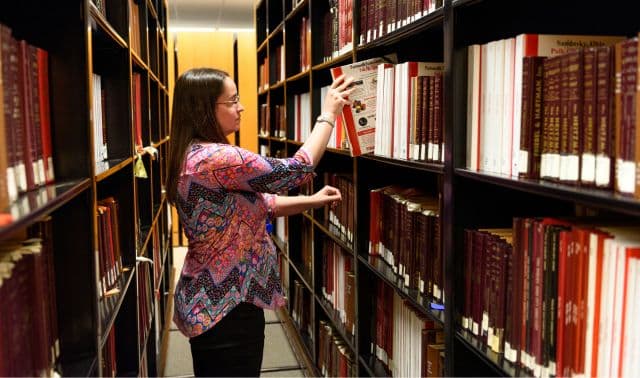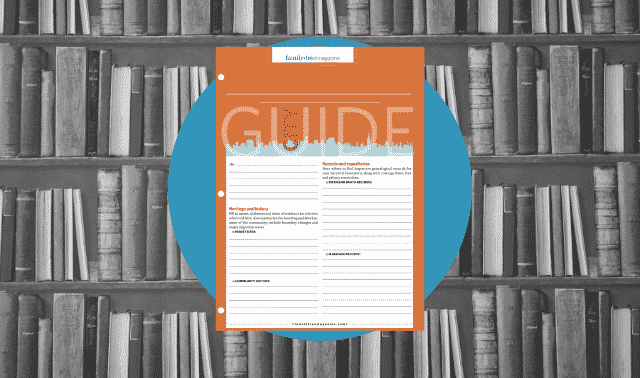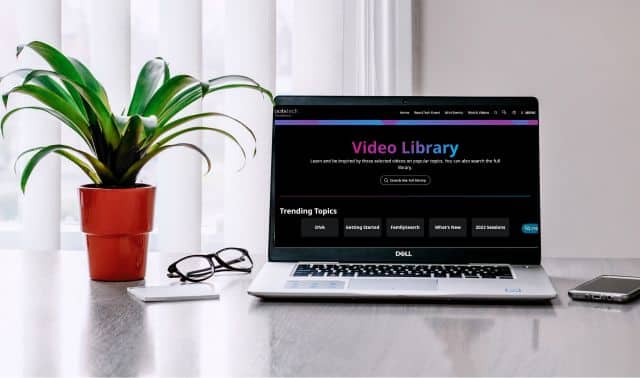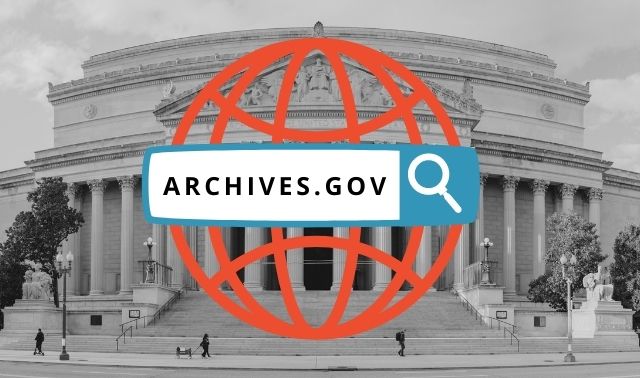Sign up for the Family Tree Newsletter! Plus, you’ll receive our 10 Essential Genealogy Research Forms PDF as a special thank you.
Get Your Free Genealogy Forms
"*" indicates required fields
Written by Alyssa Chase
This post is sponsored by Visit Fort Wayne
Stuck on your family tree and tired of staring at your computer? There are other ways to tackle your genealogical research. That’s what I discovered when I made a trip to the second-largest genealogical library in the United States: the Genealogy Center at the Allen County Public Library in Fort Wayne, Indiana. (The Allen County Public Library’s website was recognized as one of Family Tree Magazine’s Best US Genealogy Websites in 2022.)
I first learned about the Genealogy Center when writing a story about it for an Indianapolis magazine. When my husband, Rob Rebein, a writer and professor, started researching his family tree, I suggested we make a trip to Fort Wayne to check it out ourselves. Here are a few things we discovered that made our visit well-worth the trip.
1. Research librarians with real genealogy expertise
The Center’s librarians are helpful, warm and extremely knowledgeable. That’s important for genealogy research, according to my academic husband. As he put it: “Research librarians at a university library are experts in their fields. So are grad students to some degree. But most people doing genealogical research aren’t academics or scholars, so the help of experts is even more important.” That’s where the librarians come in. (It helps to contact them first and plan your visit.)
On our trip to the library, Senior Librarian Elizabeth Hodges took our searches places we weren’t expecting to go, uncovering court and church records and unearthing newspaper clippings we hadn’t found ourselves. For the first time, we started thinking about our ancestors’ immigration and homelands in Scotland and Sweden.
Genealogy Librarian Sara Allen helped Rob, who’s unraveling a family adoption mystery, with DNA research.
“One thing I discovered was that it’s possible through an analysis of your DNA relatives to narrow down the possibilities for a biological parent,” he said. “When someone’s name is not on a birth certificate and people are dead and gone, you have nothing to go on except people you’re related to.”
Sara helped Rob break things down. She looked at his DNA relatives and found that some were more promising prospects than others. “It was pretty amazing what she was able to do,” Rob said. “Sara took a gigantic haystack and got it down to a small bucket of hay and said: Here’s where you need to look.”
2. Extensive hands-on genealogy records that you may not find anywhere else
The 42,000-square-foot Genealogy Center’s holdings include 20 database subscriptions with free access, 1.2 million physical items, 68,000 family histories and 5 million digital assets. Its collections and databases include materials from throughout the United States, Canada, the British Isles and Europe, as well as African American and Native American/First Nation records. The best part? During your visit, you can use them all for free.
Rob, who snuck off during a tour of the vast physical collection, quickly tapped into resources from his home state. “I easily found bound marriage records for Maple Hill, Kansas on the shelf,” he said. “Maple Hill is a dinky place!”
3. Vibrant surroundings of Fort Wayne make the trip fun
We spent just one Saturday afternoon at the center, and it’s clear we need to head back. We’re looking forward to it. We also discovered that the area surrounding the center in downtown Fort Wayne brims with places to go and things to do, whether or not you’re into genealogy. There’s Parkview Field where the TinCaps (Fort Wayne’s minor league baseball team) play, a botanical garden, historic churches, hotels and restaurants, and parks and greenways along the river — all within walking distance of the center. Even if you flew into town and had no car, you’d have fun places to go to reflect on your discoveries.












